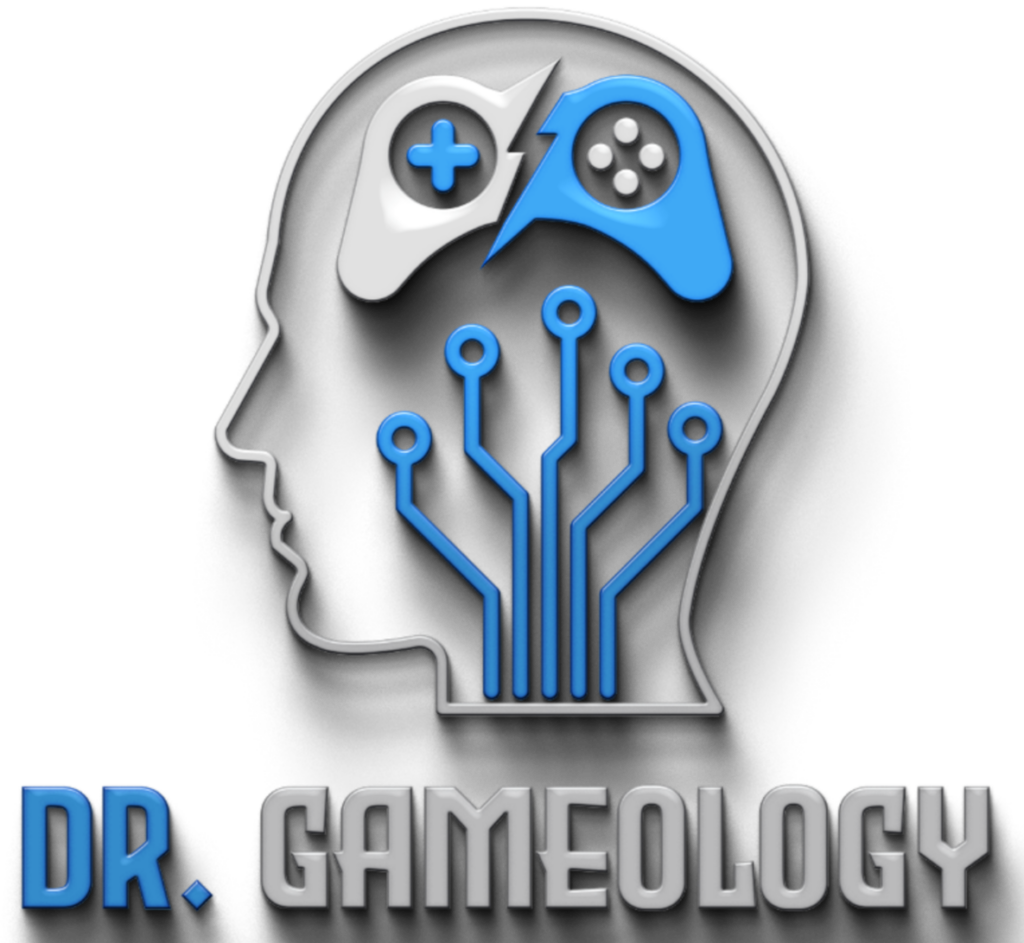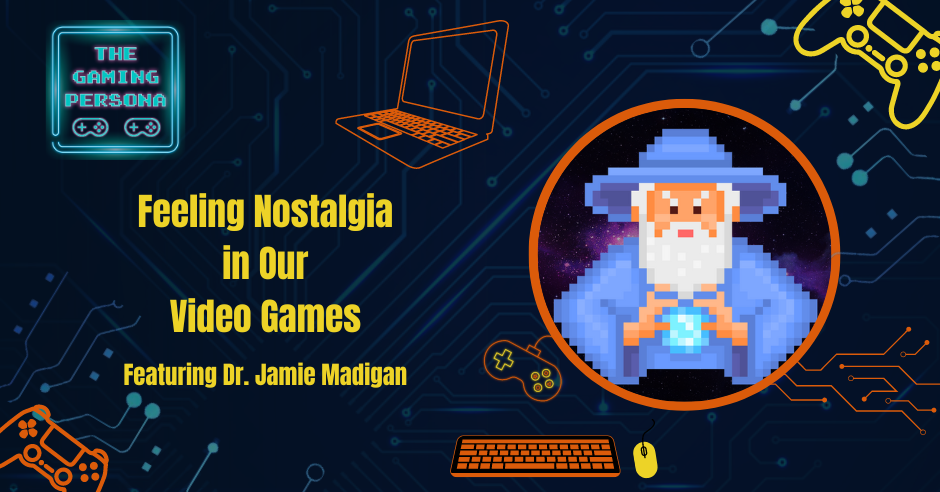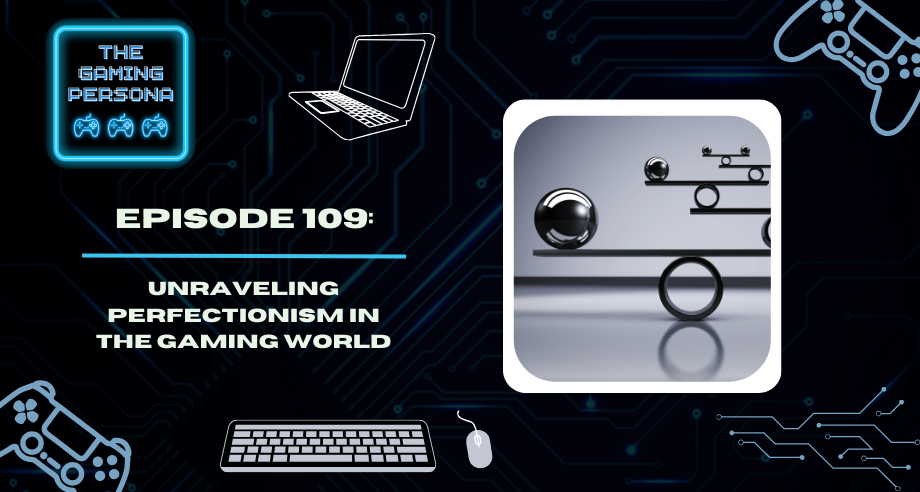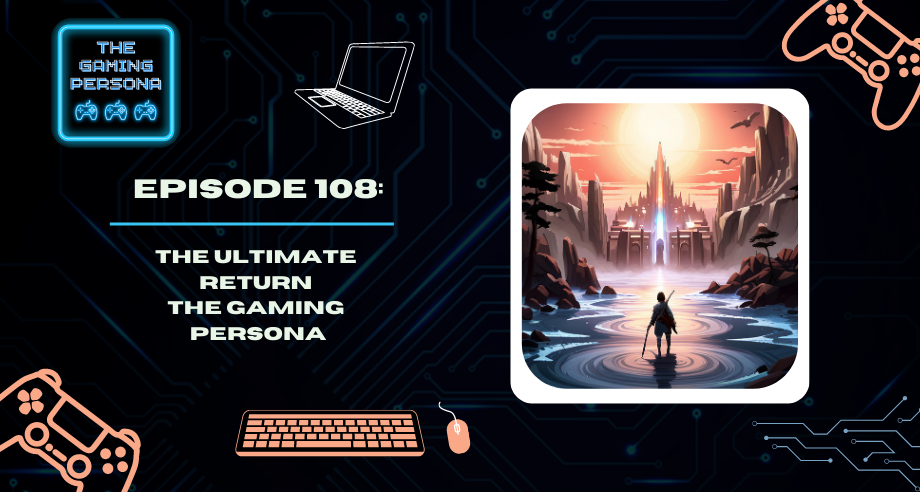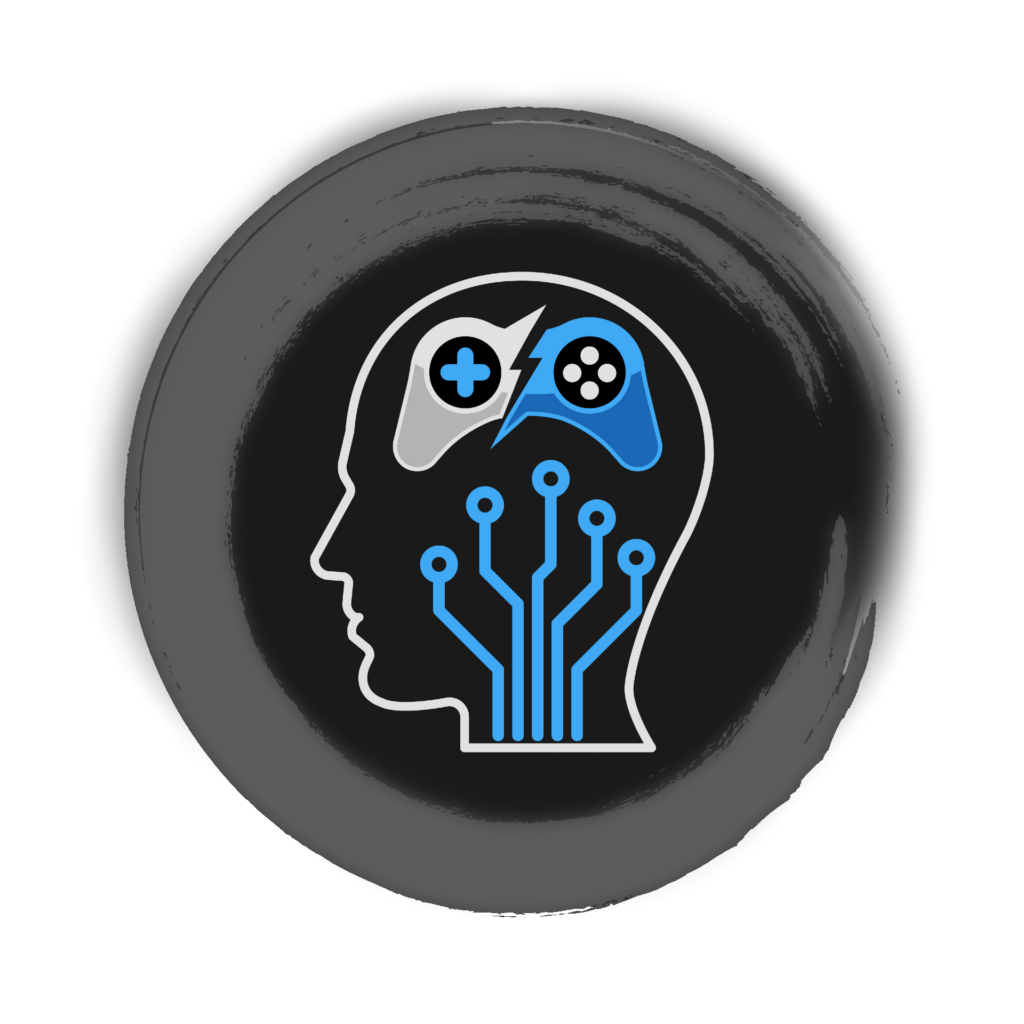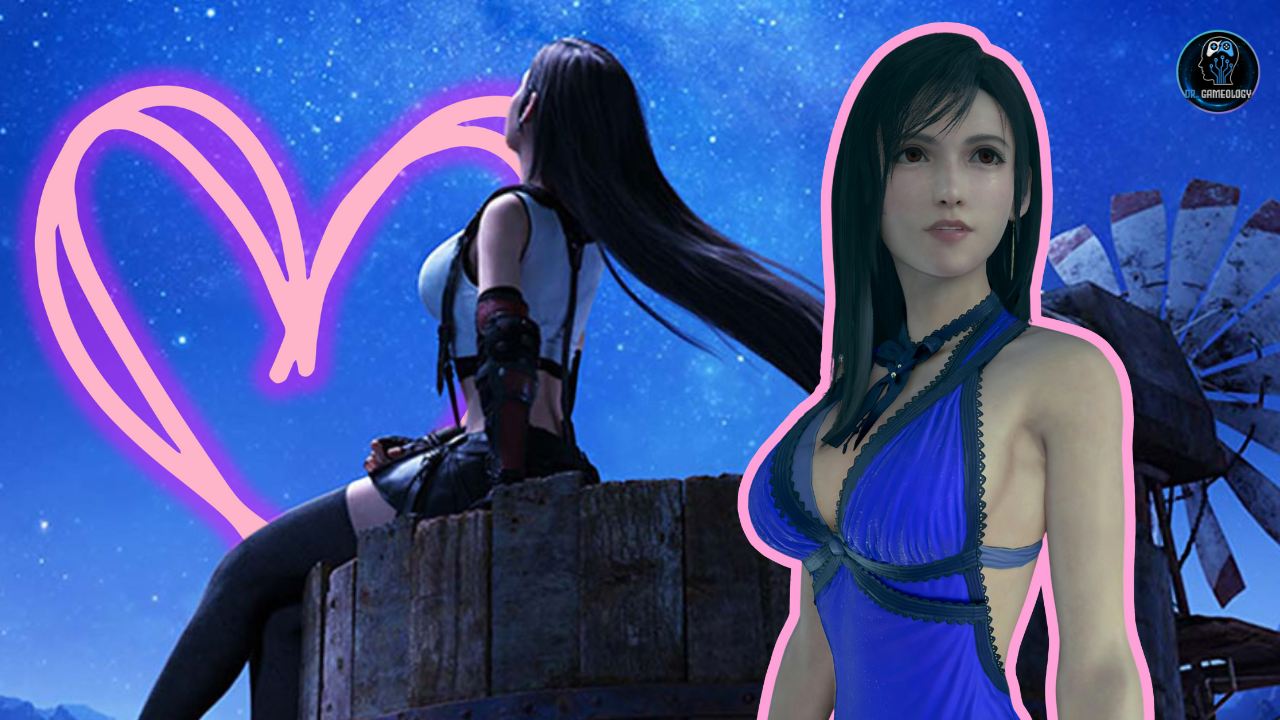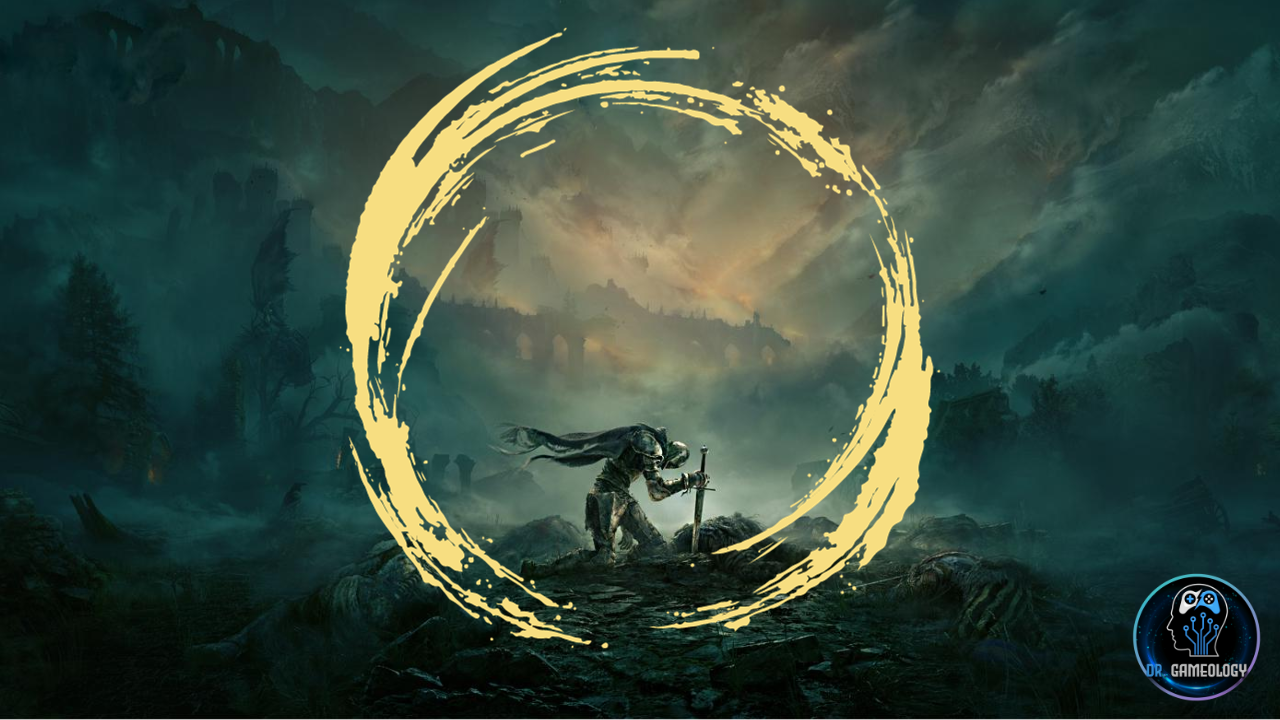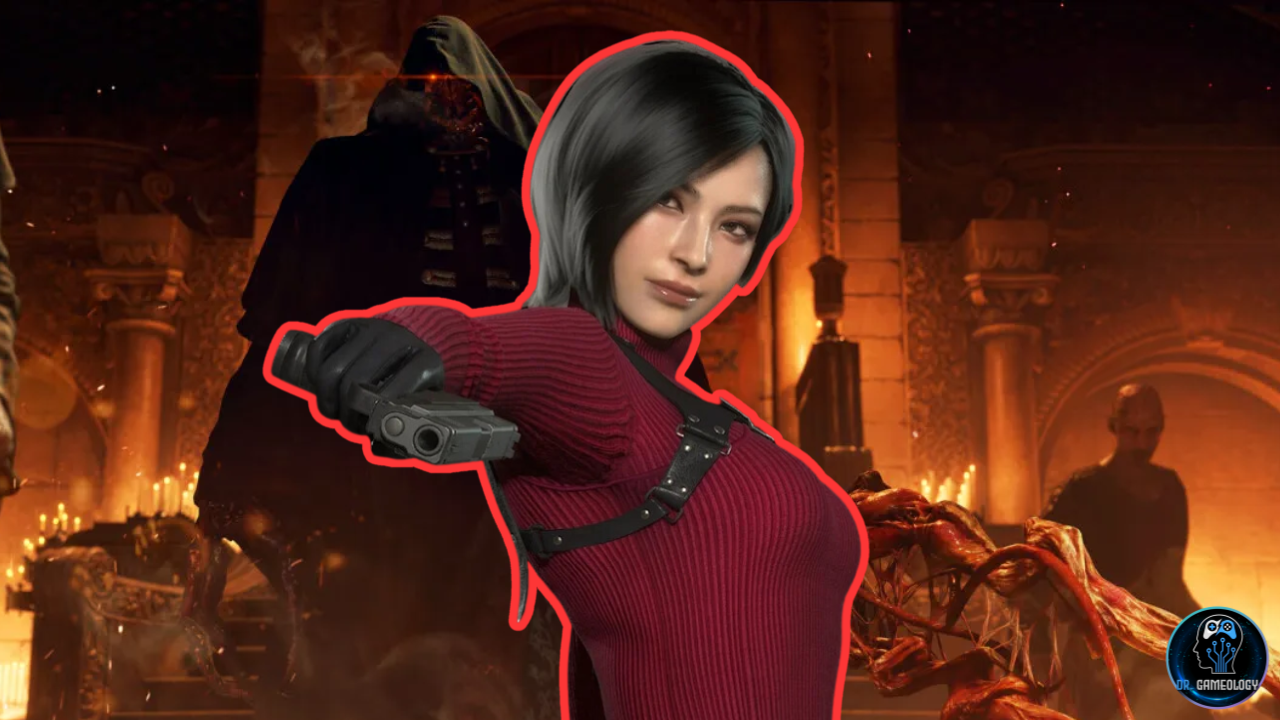The host of The Psychology of Video Games podcast – Dr. Jamie Madigan – joins the show this week to discuss one of the chapters from his book; Getting Gamers. This week, we dive into the nostalgia in video games, how games use it, when it works, and why it sometimes doesn’t work as well.
Gaming Library:
Elden Ring, Star Wars: The Old Republic, Final Fantasy XIV Online, God of War / God of War: Ragnarok, Jedi: Fallen Order, The Last of Us: Part 1, Mario Kart 64, Rock Band, Resident Evil, Minecraft, Fortnite, Roblox, New Super Mario Bros., Super Mario World, Devil May Cry 4 / Devil May Cry 5, Call of Duty, Mortal Kombat 9 / MK Trilogy / Mortal Kombat 11, Dark Souls / Demon’s Souls, The Witcher 3: Wild Hunt, Pokémon
What are we talking about in the world of video games this week?
We are going to talk about nostalgia in gaming with our special guest for the week.
The Ordinary World
All right, and I will introduce him in The Ordinary World where we share everyday life through our games. So, everyone, I am very honored and excited to get to bring in our guest today, who is the host of the psychology of games podcast. The idea that runs our show is the title of his show. So, I’d like to offer a warm welcome to Dr. Jamie Madigan. So, Jamie, you are a PhD holding psychologist. You write. You podcast. You lecture, and you go all over everywhere talking about the psychology of games. And I got to do a couple of your trainings. So welcome to The Gaming Persona.
Awesome. Thanks for having me. This is it’s great to be invited. I always love to come on and talk shop with like-minded people. So happy to be here.
Yes. And I’m actually really excited you did all of the background work to make this an amazing conversation, you gave us your gaming motivation scores. You have already done a lot of the heavy lifting with the books you’ve written and the trainings that you do. And I’ve been listening to your show, I really enjoy it. And then I have this natural reaction of oh, well now I probably should wait like five months before I do that topic on my show. Thank you for coming. So, for Ordinary World, we talk about what we’re doing in video games. So, what have you been up to as a game player or as a person who thinks a lot about the idea of playing games?
Yeah. Yeah, on the video game front, I am continuing my quest to finally finish Elden Ring. Yes, that game since release day. I’ve bought it twice, once on the PS5.
So, I bought it on the PS5 and started playing it there. And then I’ve got a couple of friends that I play with play online games with on Tuesday nights and they were like, “Hey, we just bought Elden Ring on the PC. Come play with us.” So, I was like, “ah dadgummit.” So bought it again there. But I keep starting over and I keep like wanting to try out new builds and replay the early parts of the game over and over and over again. So, I finally sat down and decided like Alright, I’m going to get endings I’m going to see credits and I’m going to go and I’m, I’m well on my way. Not as far as I had gotten with any of my previous characters, but almost as far as I’ve ever been into the game, and I think I’m going to do it.
Jamie? Yeah, I think that on some level, we might be sort of clones.
Yeah, like very long-lost brothers of some sort.
The discussion of buying it on PS5. And then well, maybe I should buy it on Steam and then not really liking your character, the beginning because of the build that you’ve you funneled yourself into. Yeah, that’s like the last six months of our show. of ordinary worlds. I’m working on my fifth time through the journey, you know, they call them when you when you claim the title belt award and you choose to play again, they call it a journey.
So, you’ve beaten it multiple times?
I have, yeah. Okay, I am a coward. And I use magic and stay far away. And as far as my boss strategy, I just focus on dodging everything. And using a lot of percussion style thinking I’m a before I became academically anything, I was a drummer. And so, I just kind of look at the cadence of the different swipes and you know, serpents trying to bite you from the sky and just kind of, we’re in the rhythm of the dodge button.
That’s good. Did you ever play second row from sort of non that you might check it out? Because its rhythm based like it you don’t block or dodge as much as you do parry and like the attacks have? I’m told I have no rhythm. I quit playing that one. But maybe you’d like it.
Then I’m sure you’ve played Jedi fallen order. Yes, I have. It’s like that but more intense. It’s all about the lightsaber deflect.
Yeah, okay. I was not very good Jedi fallen order. The Cowardly force magician thing doesn’t work. I fall in order. You have to be good with a lightsaber. Yeah. Yeah. Oh, man. What else? What else is happening in video games for the rest of the group today?
I actually played video games. Let’s see what I know. So, I went on to Final Fantasy 14. Because Wes was telling me about the event that is going or was going on last week.
You did the event?
I did. I did.
Did you finish it, or did you cheat?
Oh, I finished it. It was hard because I’m terrible at platforming
Ninja Warrior!
But I did it. And I got the outfit. That’s really all I wanted. And then so I only plan to play for like 2030 minutes to finish the event. And then get back to editing. But so I guess in our FC house, there is a little corner that you can they put a bed inside of a like a fire pit for some reason. No. Yeah. So that you can because there’s some sort of glitch where if you can slash those and lay down in the bed, and then you stand up in that little room. And then if you kind of walk towards the corner and just jump it brings you shoot you all the way up to the roof. I don’t I don’t know if this is a thing that people know when they’re building houses. But it worked. So, he was showing me that but inside the like side the firepit I was having fun. And there was one point where Wes was in my frame and G-pose, and I didn’t realize it and so I took a screenshot. And he was actually looking at the camera for some reason. I don’t know why. Well, his camera his character was and so it looked like that meme, where there’s the house on fire and there’s a little girl in the fourth like the foreground. That’s like looking back at you like kind of smirking. Yeah. And it was hilarious. Like I was like “The meme channel in my Discord makes sense now!”
Yes, so once that happened, I was like, “oh my god, I can make Hellmo,” which is my favorite GIF of all time. And for people who don’t know Elmo is a GIF where it’s Elmo and he’s got his hands raised up high and there’s like fire in the background. I don’t know why, but I really love that gif. It makes me laugh every time.
So, I made a GIF of myself / my character as Elmo, and it looks amazing. I, we tweaked for a long time trying to find out which emote would make my arms be in the right place. So, I can just catch it for the screenshot. But yeah, we spent I was on for a good hour doing that.
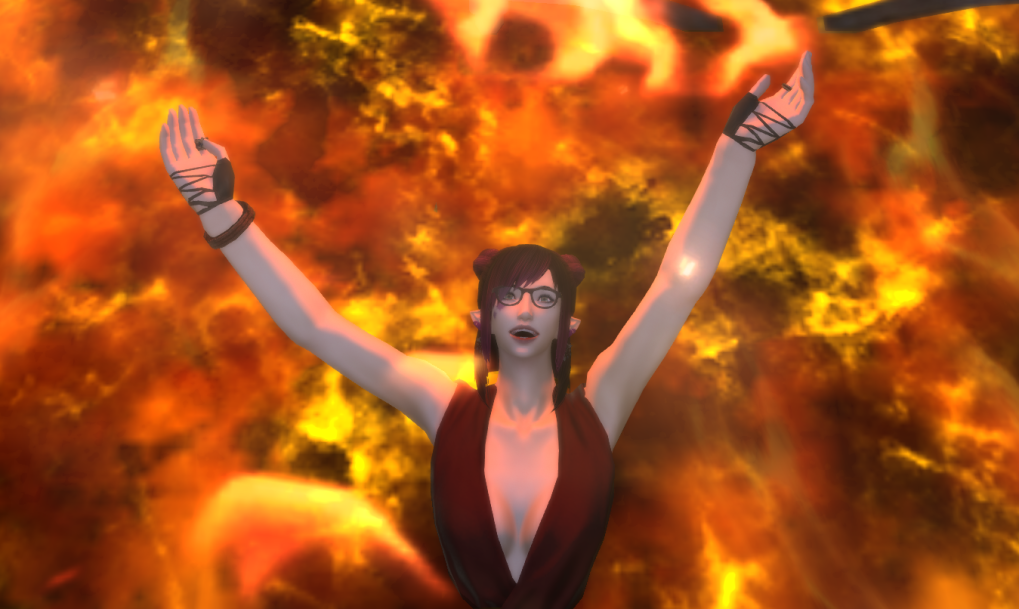
I bet you edited your pictures more enthusiastically because you gave that time to yourself.
It’s true. I agree. Yeah, rationalizations.
Procrastination. But there is a there is a GIF that exists there because of your choices Jenny,
And I still finished editing. So, all as well.
Yeah, that’s what we do here. Everyone, we play games, and we finish our stuff. Oh, yeah. Jean, what’s up for hiring?
So, I played a game that’s fitting for this topic. It is purely driven by nostalgia. It’s called SD Gundam battle Alliance. And what that game is it mashes all of the Gundam anime shows into basically a matrix simulation. And for whatever reason, the program is altering the history of pivotal scenes from the shows. So, if you’re not familiar with Gundam, or are you, Daniel?
No, just explain it so that everyone understands like a child.
So essentially, it’s people have gotten into space-built colonies. At some point, that space people after several generations of living in space, they’re like, “We don’t need the Earth. Our destiny is to leave and travel the stars.” And then Earth. Government doesn’t want to let them leave. And there’s a big war, they end up building giant robots to fight each other with as you do. Yeah. And yeah, the titular Gundam, in each iteration of the show is usually like the next top-secret prototype that will change the war. Okay. And so, so the game like alters the scenes as basically kind of nostalgia bait. So, like, if I were to use like a Star Wars example. Imagine Luke goes to Cloud City he’s about to fight Vader, they ignite their sabers. And then Vader gets time warp and shifted out with General Grievous who does murders Luke because he has no, he doesn’t care to try to turn him. All right. And so, then you have the player, you have to get in there and defend Luke until the timeline corrects itself.
We just stepped into all kinds of stuff. First off, the LEGO Star Wars Christmas special from the pandemic time. Totally all about that. The Time Warp Enos of messing with Luke’s encounters with Darth Vader. And then for all the Star Wars fans that love Luke Skywalker from your childhood, probably not from like the late 2010s. Sorry. Yeah, we have to wrestle with the reality that in the original trilogy, no one was ever really trying to kill Luke. His hair, his heroism is completely a sham until we saw him in the Mandalorian. Like, that’s the first-time things were actually trying to kill him.
I think technically, the only person that was trying to kill them was the like, what was his name? The guy at the bar that Obi Wan kind of?
Oh my gosh. Dr. Evazan.
Something like that. Yes, he was a doctor. I remember that.
Wow. Okay, so my ordinary role kind of lines up with this weird thing that Jean just did completely unscripted. I tweeted about SWTOR this week. You know, I put the banner image from the shadow of Revan on a tweet yesterday and I hashtag so tore the game. So, Jamie, my dissertation was about personality type using the MBTI with SWTOR players and creating a taxonomy of how the 16 personalities choose their end game structural characteristics differently. Interesting. And using Nikki’s gamer motivation, instrument, the MPOGQ as well. So, but as we all know, we don’t all know this, but as we all know, SWTOR has had some identity crisis, ease multiple of them and So I stopped playing but then I’m coming back around like Star Wars was hard. Star Wars is getting easier. And I just needed to see Darth Vader destroy some fools and brought me back. So ordinary world. Final Fantasy 14 had a new content update, they added the next main patch. I don’t know the actual patch number, but they added boss five through eight in the Pandemonium rates. So, on Sunday, I made my triumphant return to streaming after three weeks of faculty binder, hell, telling me I’m not allowed to actually play games, talking about them is the best I can do. So, the binders submitted, so I got to stream, and we cleared the normal level of difficulty for all four, I died about two times per battle. As a black mage, that is great, because the average is probably 17.
Nine or so?
Yep, that was me clapping for everyone who can’t see our video, but I deserve it. And that’s called self-affirmation for people who need mental health tips. So that’s my ordinary world.
Call to Adventure
So, let’s get into our topic and hear from everyone on our Call to Adventure. Alright, so nostalgia is a really important piece of what makes video games work for a lot of people. So, I want to just go around each of us and get a basic sense of where we have noticed what nostalgia is actually and where we’ve noticed it in our lives. And because we have such an amazing guest for this topic, Jamie is okay, if I have you lead us off and kind of introduced this idea of what video games are doing. Deliberately? And maybe situationally? Yeah, for us. Yeah, for sure.
Yeah, so I’ve written and talked a fair amount about this topic, “Nostalgia and Games.” And I have a whole chapter on it, and one of my books, and based on what I’ve, I’ve read and people I’ve talked to, in psychology, nostalgia is generally considered like an emotion, like, like a lot of other emotions. It is sort of this bittersweet remembrance of times gone by, that’s tinged with, like regret about things you’ve lost. So, you’re remembering the good times, but you’re also sort of unhappy that things are not as good anymore. Basic sort of emotion. And you know, when we can get into this, but there’s research that suggests that it’s, it’s beneficial, you know, that can help people get out of bad moods, or funks. People who are prone to nostalgia, tend to have fewer problems with things like depression, they have higher self-esteem, they find it easier to trust people. Although I would toss out the caution there about causation and correlation. Like we don’t necessarily know like, which direction those relationships run might be that just people with higher self-esteem are more nostalgic in general, not the other way around. But yeah, it’s, it’s something that’s been co-opted for a long time by marketing folks and other entertainment properties to try to sell you things from your youth or do reboots that people are interested in by virtue of nostalgia, maybe above anything else, and sometimes that’s good, and sometimes that’s bad.
Okay, man, that last point, there really just makes a couple of video game properties pop out, you know, like The Last of Us. Part One wasn’t part one. When it was the first part. Yeah. You know, so you create part two, and now the, the lines don’t line up, right? Because now the first one is, you know, like, yeah, maybe we can put it on the PS5 and call it part one.
Yeah, I never played part two because I thought Part one was like such a complete package. And I didn’t want to change my memory of that.
In a way you have such a nice memory. There’s, it’s over for you.
Yeah. Yeah, I didn’t want to alter it. I thought it was great. It was great experience. And I was happy with that. And there’s plenty of other games to play.
Like all the people who think Emperor Palpatine died in Return to the Jedi?
I won’t hear anything else.
You know, I wasn’t mildly okay with the weird cyber Palpatine that was in one scene of Battlefront 2.
Yeah, I also agree, though, that what they did in Battlefront two actually made sense. And it never became anything, as far as I know. It happened in a video game cutscene. They had a robot project Palpatine to command his officers to do Operation Cinder, or something like that, which was basically burn the Galaxy down because I’ve been killed. So, the game is about the characters whose mission are to go hit specific targets to avenge a fallen empire. And then the characters realign themselves to join the rebellion because they think “this is whack.” And then the Palpatine thing never resolves. So, I’m curious what Gene was going to say about the nostalgia of that I just wanted to comment that we’re always messing with our past memories, because it’s probably way harder to create a new property.
Yeah, yeah.
I think the marketing folks will tell you like, we’ve got data that people will buy more of this, you know, whatever it is, and it’s, it’s less of a risk in their eyes. And that’s how things get greenlit because you have information on how popular it is. And you assume that there’s a built-in audience but
Yeah, yeah, for sure. I think for me, though, when properties go in a new direction, so God of War is an interesting property in this respect, because God of War, just the name but from the late 2010s to like 2018 is a distant sequel slash. Not, it’s not a reboot because the first three games happened, and they’re really important for understanding Kratos. But the purpose of that story is so somewhere else, that it captures the nostalgia by virtue of Kratos but completely changes his weapon for 80% of the game, leaving you like, is he going to get the blades? Is he going to get the blades?
Yeah. And when you finally do, do the call back to the original games, it’s like kind of a big character moment for him because he’s like, “Alright, fine. I’m back in it. Let’s unchain the beast. Let’s go!”
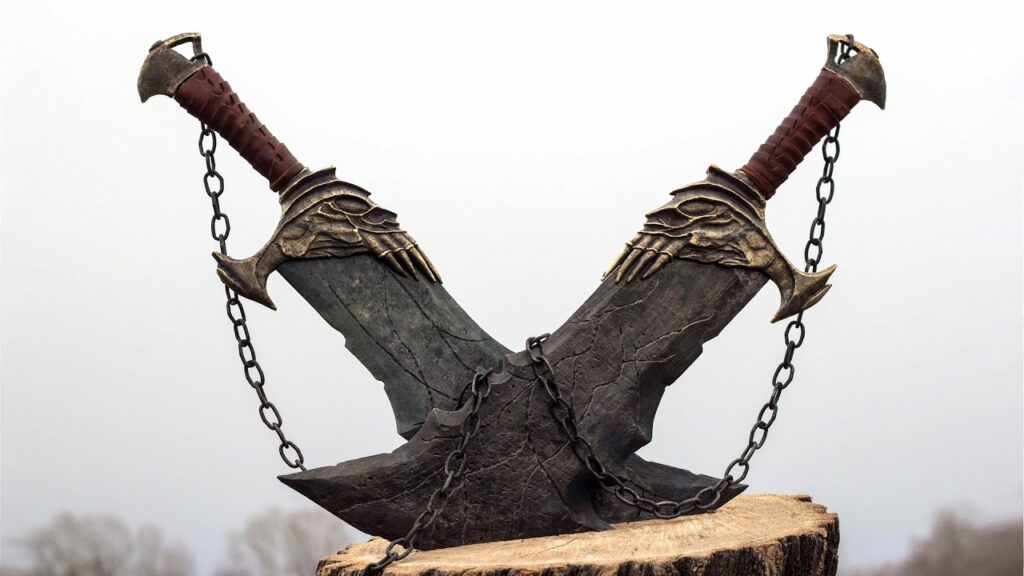
Yeah. And it became something new. So the titles the same, and maybe there’s some nostalgia value in that. It’s not God of War four. It’s God of War one again.
Yeah, kind of to be followed by God of War Two, or I guess, God of War: Ragnarök.
Right. It’s a different pantheon of gods different society. I think that things that do that are just really neat for the nostalgia potential in video games, rather than a pixel remaster, like all the Final Fantasy games did with the older six games, they just updated the pixels.
Yeah, neat idea. But yeah, I, I think it’s kind of harder to do this, or lean into nostalgia for something like The Last of Us one that’s much more recent or forgotten. Where Ragnarök nostalgia is for the most recent God of War game, because most of your most nostalgic memories are from times a lot longer ago than that, like they tend to be for people in their formative years, like their teens and their early 20s. And, you know, they they’ve done studies where they’ve made people feel sad, which is sort of questionable ethically, but let’s go with it. And then they gave them like, products from their childhood. And then that, you know, showed that they would boost their mood and make them more open to socializing with people and some of these other positive effects, but they had to be like, of the area era that was appropriate for that person, whether it’s the 80s and the 90s, depending on when you were born. Like that’s when the effects were the strongest. So, again, mean that you were playing back when you were a teen or an early 20s? You know, is much more likely to elicit nostalgia than a game you played two years ago? Or three years ago or even five?
Yeah, I would agree with that. For me personally, when I, I have, I’m just thinking of my relationship with the soldier and video games. And for me, whenever I go to like, a video game bar, or like an arcade or anything like that, I immediately gravitate towards the games I used to play when I was a kid. I don’t even bother with like, the new games that came out. They have like all these giant screens with PS fives and like anything you could dream of playing. And I immediately go to those NES type games and play the games I used to play.
Yeah, this is why you destroy me in Mario Kart.
Before I remember playing, playing Mario Kart at my house with your son. And it was I think it was the N64 version. And me being super excited to just like play this game with my friends and his family. And he I remember specifically him saying, “Why is it so slow?” It’s like, oh, my gosh,
That game is strangely slow. What is it that the level, I think is Wario’s stage, one where you’re on like a dirt track. For some reason, a lap in that level is forever. Yes, you can fall off the jump, and double the length of your lap.
I love that stage.
Practice makes perfect, even in video games. This lesson translates no matter where we learned it if we put in the time to play through the struggle when things aren't necessarily a game. Share on XI love the realizations when we’re talking about things. And then I ended up bringing things into the conversation that I didn’t even realize were there. Rock Band has a really interesting connection to this for me. I loved rock band, one, two, and three. They came out at the perfect time for me, they started coming out when I was still teaching drum lessons, because licensing boards and things said, you know you haven’t finished grad school yet, so you can’t counsel people. So, you probably should make money doing something else. So, drum teacher. And so rock band is a video game was just really exciting for me because it’s a gamified feedback system to tell kids if they’re getting the hits, right. And you know, games are better than people at feedback because it’s instant. It doesn’t care about your feelings, and it’s just telling you the truth. Whereas if I tell people the truth, I find this out every week when I tell people a truth like you did not use a peer reviewed source in this entire section of your paper. Apparently, that’s my opinion. Like you’re right, but if it were a video game that just, you know, like the plagiarism checker, and it just looked for a parenthesis and in a proper noun and then a year and it said, occurrence zero. They wouldn’t have anyone to argue with. It would just be a game that they have to play right?
They’ve spell checkers and grammar checkers that do exactly what you’re describing, right?
Oh yeah, they could use them, for sure!
Alright, so back-to-back to rock band, the fourth one came out on the newer consoles. And of course, I bought it that’s super exciting. It was bringing me back to 22,008 or whatever it was. And there was no way to play Welcome Home, by Coheed and Cambria. So, I spent all this I spent all this money on new instruments to connect by Bluetooth to my ps4. And I paid money to grab the songs from Rock Band one and two and three, and I put everything I could Green Day Beatles whatever. And the list from Rock Band one did not have my song. And I have played that game. A total of 30 minutes in my life. It had such goodness soldier potential, and it broke my heart. And it didn’t it didn’t have the thing that would have brought me back four months of my life. So, Wow, interesting. I didn’t know that I was going to have to have such a cathartic reprocessing moment on my show.
Well, let’s see. Well, we’ll go, we’ll be on brand and talk about the old resin evils, Resident Evil One. And it’s remake. It’s an interesting combo of the two because even though it’s a remake, they’re not identical. You know, the remake has things that aren’t in the original and vice versa. And so, it’s like, you can play one of the two games and kind of forget what happened. From which timeline.
The dogs don’t break through the window. Uncertain controls. Yeah. Oh, man. That’s so true.
Yeah. Yeah. So, I mean, and I think, I mean, the original had much worse voice acting, which was a blast.
“You were almost a Jill Sandwich!”
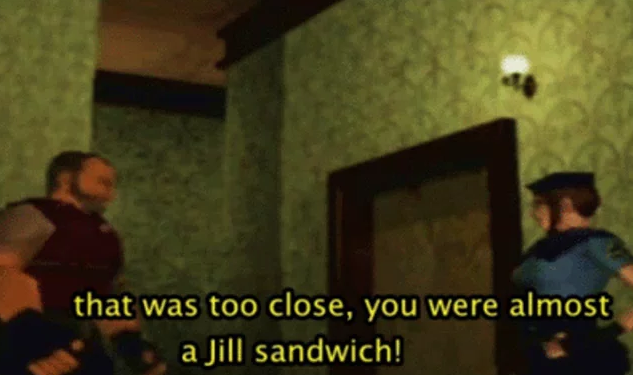
But yeah, like so yeah, just playing those games and just trying to remember the very obscure puzzles without referencing a guide again, that’s kind of a treat sometimes.
Yeah, that’s a series that I completely missed out on. And I have no nostalgia for somehow, like, I never played a Resident Evil game until village, like fairly recently.
Oh, no. Resident Evil Twilight.
It was interesting. But eventually, I was just like, too unpleasant. Like, too much like body horror. And that baby scene if you know what I’m talking about.
Anyway, that’s my plan for Jenny. She really loves it.
It’s not I do not like that game or that franchise or zombies.
She does not like it here or there. She does not like it anywhere.
Jamie, go probably like the first three or four games better because it’s more camp. Less visceral.
Okay.
Yeah. Body horror didn’t start till they ruined their franchise and became a first-person game. But I don’t have really strong opinions about Resident Evil. I love the franchise. Resident Evil is always going to be a franchise that brings me back and Dead by Daylight got Albert Wesker this week, which when our listeners hear this, it’ll be a couple of weeks ago. But that’s still really an amazing cross promotion for both franchises. I love that game. I’m finding out even though I have to agree to die many times.
Finding Our Allies
Yeah, so let’s move into Finding Our Allies. So, Jamie, you have a book chapter on this. You’ve done presentations and publications on this. What got you started on this direction of you know, talking about nostalgia, particularly in the psychological makeup of video games?
Yeah, it’s kind of a topic that I didn’t expect to, to learn a lot about and write a lot about. I needed basically I needed another chapter. I was writing my, my first book proposal for forgetting gamers about psychology of games. And I was just kind of like looking around for topics and I was like, Well, what’s in what’s in the literature, nostalgia? Okay. Not hard to find stories about, you know, remakes and reboots and remasters and all that sort of stuff. So, I thought that would be potentially a good topic. And I wrote like a paragraph for the proposal and was apparently good enough and that eventually turned into one of the chapters in the Getting gamers book. And that was pretty much it. And once I started diving in and started trying to make the connections to video games, specifically because there’s very this is generally true, but in for nostalgia was especially true. Not a lot of research in the context of video games, lots of research in the context of other types of media and fashion and food and all of this other kind of things that people get nostalgic for. But I kind of had to take that and then apply it to video games. And one of the conclusions I had in the chapter was that like, man, video games are better suited to elicit nostalgia than almost anything else. Other types of media, you know, other things that we remember, because, you know, part of the research is that nostalgic memories tend to involve other people, right? They’re about our relationships with other people. You may remember playing a game, but you’ll often remember playing it with someone or talking to someone about it or something along those lines. Games are more and more multiplayer and more and more connected more and more social, like every passing year. You know, there are more of those in the marketplace. Video games are often marketed at kind of that prime demographic that that teenager and early 20s You know, the average age of gamers is climbing but a lot of the big phenomenon like your Minecraft, your Roblox, your Fortnite still have a huge young demographic, you know, most of their players are young. And then we spend like so much extended time with a given game, you may watch a movie for 90 minutes, but you’ll play a game for 90 hours. And so that sort of gives it way more opportunity for you to build up those memories and associations with. So, I think that like the research is there to be done. Somebody could look back on this stuff and do this research and measure nostalgia as it relates to video games and probably find some pretty interesting findings around that stuff. Because it seems to fit a lot more than I sort of initially thought it might.
It is really helpful to understand the many ways games like Roblox, Minecraft, and Fortnite can help us connect with other people. Games can be a powerful way to find something to talk about in the right situations. Share on XYeah, and pointing that out. I have a couple realizations here. The first time in my life, I just realized nobody cares that people my age buys their video game. So, I have passed that number. So, but then the second thing I thought about this is a bit obscure. I don’t know how much we’ve ever talked about the Wii U on the show. But the New Super Mario Brothers came out was one of the main titles for that console. Attempted console, I guess we could say. And the whole idea around that game is let’s make another two-dimensional Mario game for the home console. Let’s bring in those 1980s Mario players and make them excited to play with their kids probably. And it turns out, we all just wanted to play Super Mario World again. So, like Virtual Console, probably as much more utilized than the Wii U was. And you know, so that’s sort of the trick in histology I think as well. And just for clarification in case people are wondering why I’m being so judgmental towards games, and Star Wars, is because all these things I’m trying especially with Star Wars, like you have multiple generations now you have nostalgia for the prequels. But the backlash against the prequels is it didn’t do well. On the nostalgia of the original trilogy, it became two different two different two different over and over with Resident Evil village, two different the New Super Mario Brothers in the Wii U two different like, we see what you’re going for. But there’s also the risk of being too different, I think.
Yeah, I think it’s tricky. It’s like a tricky balance. Because there’s always going to be people that that complain on both sides.
When it comes to nostalgia, it’s, it’s different for everyone, right? So, my emotions that are attached with a particular video game is going to be different. I’m going to love that game for a different reason than someone else. So, it’s really tricky balance when you are making a new game and trying to update something or bring back some of those elements.
I think for me, it’s really a time differential. If you go 20 years or so without something, and then you make something pretty different than it’s a real big margin of error, where you just don’t quite capture the audience that you want to capture. If you’re doing in something like a video game example Devil May Cry, the gap between Devil May Cry 4 and Devil May Cry 5. I don’t even know how long it was like 10 years. It was substantial.
It was yeah, it was probably 12 years. So in between that they had DMC which was a very different direction, and people didn’t like that.
It was “too different,” Gene.
But when you get a big gap, most people just want the “Previous one, But better!” Like, if you were to make the DMC’s every year if we were on the DMC 20, People wouldn’t care as much if you made DMC 21 mediocre.
Yeah, yeah. See Call of Duty.
Yeah.
Oh, man. I ranted about Call of Duty with someone earlier today. But maybe that’s a different episode. Okay, well. I think that’s a pretty good summary of what nostalgia is.
The Ascent
Now let’s elevate the topic beyond a galaxy far far away and go on The Ascent. Alright, so we can really go any direction we want for The Ascent. But one of the things that I did track down for the peer reviewed element in our conversation today is this amazing chart that’s published in psychology of popular media from two years ago. And it’s the authors are Wulf, Bowman, Velez, and Breuer, and so many variables all over the place. And nostalgia is the core variable that takes the starting variables, and then moves it into the resulting variables for how we feel about the game. So, for people who are not looking at the research, and they’re just listening to us, and they’re trusting us, to empower them with this knowledge we have we have personal characteristics that we bring as the player into the game. Things like our autonomy and our competence, are relatedness. And then we have “why are we playing and when are we playing?” And then this all just takes us, and it throws us into the game with what we bring to the table. And we’ll talk about the result of that in a little bit. I just wanted to set the table for everyone to be thinking about the breakdown in you about what it takes for you to enjoy a video game. So, Jamie, I’m sort of the outsider. Like, like the bridge between people who play the games, and then the people who focus on speaking on the nostalgia of games, right? That’s not my topic. So, I want to I want to send it back to you about you know, how you kind of see that transfer of who we are and how nostalgia hits us, or whatever else you want to talk about?
Yeah. Yeah, I’m looking at this, this graphic, this model that that you shared, and it’s kind of interesting, and there’s like a fad that’s been going on for a while where you’re you, you throw the self-determination theory, my variables of autonomy, competence, and relatedness, like into everything. And then you just sort of see what shakes out. So, it’s like, how many? Six, it’s nine boxes, nine variables, and then there’s correlations, typically, they’re not correlations or path coefficients, but same, you know, idea of like the relationship between all of these things. And I guess what it’s saying is that like, how much we enjoy game drives, how much we’re nostalgic for it. There drives, feelings of nostalgia, whereas related to them, and then those feelings of nostalgia result in perceptions of vitality and connectedness and optimism and so forth. And that jives with a lot of the other research that I’ve read around You know, enjoyment of games, and that being important to having these nostalgic experiences with them. And then feelings of at least, connectedness. You know, like I said, most feelings of nostalgia tend to involve other people. nostalgic memories are generally memories of groups of people, friends, family, etc. And then this idea of optimism, and that you mentioned earlier of like, connecting us with our past. There’s also some research around the way that nostalgia can act as like a bridge between past identities and current identities when we need it. So, we tend to remember being Celtic for certain things, because it makes us feel like we’re part of we were part of something important, or it helps bolster our current sense of identity. Like if you were part of the, you know, the initial wave of MMO players, or if you were part of the people that blaze trails on social media, or blogs, or something, writing about video games and reading about video games and making videos or podcasts or whatever it was, then that can help you sort of cement your self-perception and identity in the future and help bolster those when you need kind of like a little mental pick me up. So optimism is probably as good a label for that as anything. So, I’m not surprised to see that relationship there.
Yeah. I mean, I optimism is one of the resulting variable boxes, that I think I really feel when I think about what games have meant to me and which ones have meant that way for me over time. So, you know, Jenny, and Gene, when you look at this chart, and, you know, think about different titles, maybe you’ve mentioned them already, or maybe you have another story, I don’t know. But, you know, what are some of the games that you think have used nostalgia to harness some kind of personal optimism for yourself?
First off as a lay person, what does vitality mean again?
Feelings of energy?
Yeah. You’re not meaningless.
I see. Ah, well, so for me, connectedness is a really big one. So, I am a social gamer. And I pretty much always have been a social gamer, maybe not to the extent that I am now. But when I was a kid growing up with video games, my memories are always playing with my brother. My brother and I are very close in age. And we did that together all the time. Any of the games that we played, we, if they weren’t to player, then we were like passing the controller back and forth learning to share. But yeah, it definitely brings a sense of connectedness for me. And in terms of optimism, I mean, I don’t know the science behind the feeling of nostalgia. But I do know, like I mentioned earlier, it’s a very strong feeling for me, and it’s something that I mean, even in my chosen profession, I’m a photographer, and I capture memories so that people can look on them and remember what they felt like on their wedding day. That’s like a huge part of my job. It’s my number one focus. When I walk into a wedding, I’m like, Okay, this is my number one focus when I walk into a wedding is I want to make sure these photos bring people back to this day, and I want them to feel nostalgic for their wedding day when they when they look at their photos. 20, 30, 40 years down the line. So yeah, it’s just it’s a great feeling. For me personally, it’s something that’s a huge part of my life. And I think it’s I don’t know, it’s, it’s popular, being nostalgic is popular in terms of like in media sequels, and, you know, I feel like there’s always a with any new content coming out. A lot of it has to do with stuff from you know, our childhood, so, and I’m not complaining.
I actually want to talk about a game that I think did this really well. This is my opinion, and everyone is free to disagree if they need to. But I feel like Mortal Kombat nine, did an amazing job of capturing the nostalgia of Mortal Kombat, one, two, and three, repackaging the story into something that has some really interesting turns that were predictable making them not too different. They were, in my opinion, different enough that it brought the feeling of those 319 90s games into the PS three or four, or switch environment. And I think that that might be what the video game people that take their cues from the marketing people were aiming for. I think that kind of thing is what video games keep reaching for.
Yeah, is that the game that you and I played?
No, that was Mortal Kombat 11.
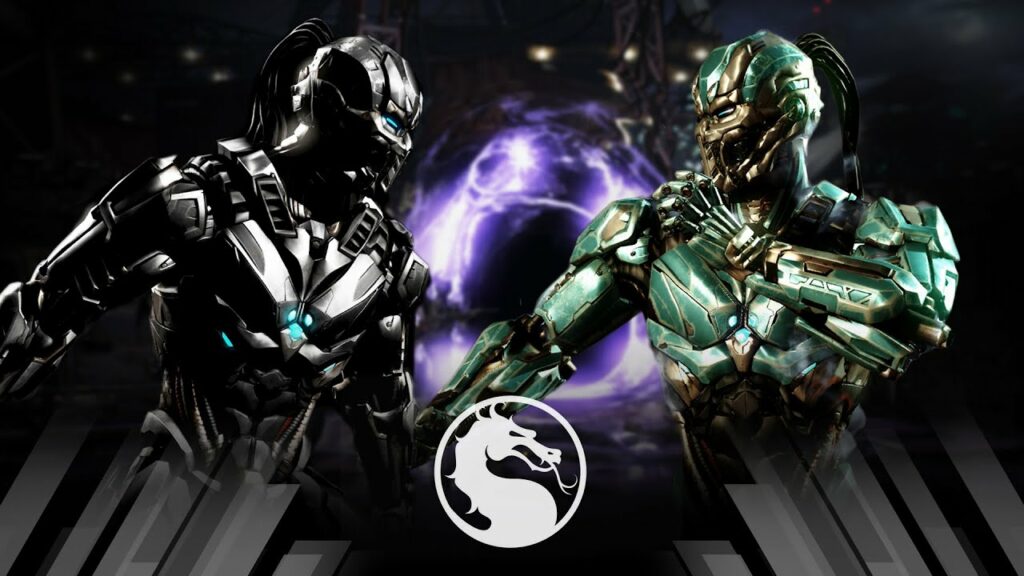
Oh, okay. Oh, boy.
Can I ask you many iterations of that, that franchise? Mortal Kombat? I do have fond memories of the first three.
Yeah, I played a lot in the arcade.
Yes, that’s nine. It captures the magic of the absolute cheating AI. Tackle backwards?
No, I don’t remember that specific. I feel like all Mortal Kombat because you can choose difficulty. And you can put it on very easy, and you can be guaranteed that you will win, and you’ll get to see the end story for everyone. Whereas I remember even as an adult buying the Mortal Kombat arcade collection on the PlayStation Store. You can’t beat Shao Kahn and Mortal Kombat 3 on any difficulty.
It’s terrible.
I love it because of how terrible it is.
As soon as I figured out UK didn’t backwards dash when you jump over him, and then jog you with a sledgehammer for basically your entire health bar. I was like, Oh, wow.
Have you tried just playing better Gene? Get Good.
Backwards tackle is a legitimate move he has as a player, you can do it.
Directions are subjective. Oh, man, well, okay, so we have tapped into Gene’s feeling of being jilted by the game designers. I actually was thinking of another question, is Elden Ring tapping into Dark Souls or Demon Souls nostalgia to be successful? Or is it doing something else that generates the histology in its own powerful, unique way?
It doesn’t seem like a nostalgic grab. To me, it’s more of a continuation of that series and iteration on it. Yeah,
Not only nostalgic, elements, and then I would say is a handful of the weapons and items are vaguely related to something from our previous game. So, like, there was what is it called? Shadow Raven, mist ability, something like that. It’s the art of war. You use it, you crouch down and if someone hits you, you leap into the sky and you can ambush them. That’s directly a copy of an ability from second row. You write various things like that, but overall, yeah, I don’t think there’s more like just callbacks.
Yeah, the Moonlight Greatsword is I’ve been in every one of those games.
Well, I think it’s an every literally every game that Fromsoftware ever makes.
Playing games together can help the formation of meaningful memories associated with the game itself. The nostalgia is not just playing the game, it is also people, places, and things from a past we remember fondly. Share on XYou know, I was thinking too about that comment about the social connectedness in games, and particularly games that have nostalgic value. They’re, they’re using the multiplayer to bring players like us into a previous period of time. Oh, man, I can’t believe we’re going to mention this game again this month. Resident Evil: Operation Raccoon City, is a game that I bought. Because I loved Resident Evil five and six, being able to play couch Co Op with anyone. Sometimes it’s Gene, sometimes it’s my wife, and just turn up the difficulty earn that infinite ammo and destroy some zombies. And Operation Raccoon City only had online multiplayer. So, there is no way at all to play that game with someone in the same building as you like, or at least on the same TV as you with only one console. And Jenny, you said something about how games taught you how to share. I think that explains mostly everything about society, right? Like video games used to teach us to have interpersonal qualities and now we just rage when a match hasn’t started for.
Yeah, definitely taught me a lot.
But I’m actually being a caricature of a different problem. I’m purposely complaining about a lot of things, this episode, because I think the other part is nostalgia. When it doesn’t go right. You just hear it from every direction.
You ruin my childhood?
Yeah, yeah. And you know, Operation Raccoon City did not ruin my memories about Resident Evil. It is the worst game in the franchise objectively.
But yeah, but it’s, you can very clearly label it as “I don’t care about this. It does not affect anything.”
Yeah, but I will tell everyone, I had to do a bit of writing recently about The Last of Us. And so, I went in, and I replayed the first 15 to 20% of that first game. And I have played The Last of Us Part Two, it was one of my stream games during quarantine. I loved it. I thought it was amazing. And I really disagree with a lot of the people that have backlash points of view on it. I think it’s beautiful and challenging for us to think about. But after playing The Last of Us Part Two, and going back to play the first one, the way you walk is weird. The way you run is weird. The way you reload your guns is weird. The way you die is weird. So, I understand Naughty Dog looking at what video games have become since the first game in some ways because of that first game and saying what if we had a unified vision where people can play the first one? And then play the second one and not feel like “why do people run so different?” So, I think that maybe there is another side of nostalgia where we’re maybe there’s people out there who are trying to have the Star Wars special edition. Like what if we had the good special effects in the old movies? Was this chaotic good? Jenny, am I “Chaotic Gooding” enough?
Yes. I’ll give it to you.
All right. What do you think about my attempt to grasp this idea so far Jamie?
I think you’re doing great!
Awesome. Well, in the you know, in a couple months or years, whenever we have you back on the show, I’ll re listen to this and I will feel really optimistic about how that episode is going to record.
There you go. Creating nostalgia in real time.
The Return
Let’s go on The Return so we can take our nostalgia ideas through our daily lives and our next step forward. So, everyone I’ve really enjoyed this conversation so far, I don’t know about you. But that’s just how I feel about everything really optimistic really connected to all of you see, I’m just reading boxes. I feel really vital right now too. So, what do we all think we’re going to take with us in the week that’s to come with nostalgia?
Well, my wife is not a gamer, though. She had her childhood was a bit deprived. So, I’m always showing her games that she missed out on. So yeah, I’m going to probably show her yet another game and really kind of pay attention to the vitality connectedness and optimism parts. See, see what sparks
Do you ever get surprised by her reaction? Or lack of reaction to things that meant a lot to you for 20 or 30 years?
Only occasionally. It’s mainly so there is you know, I’m sure as men there is certain qualities to just “Man Action Moments.” Yeah, some women do not understand why this is so cool.
Man Action Moments!
Like in The Witcher 3, different kinds of action?
Did not play that game.
Oh, well, there’s some opportunities to have sex on a unicorn. Oh, yeah. That’s a thing that Geralt of Rivia taught us all is possible.
If anyone could do that, It’s him.
Okay, that’s probably not the “Man Action” that we’re talking about.
Games. Those old like, you know, 80s / 90s action flicks of beefy men doing beefy things. Yeah. It’s a certain genre of entertainment.
Certain protagonists pull that off better than others as well. It depends on what the vision for the character is.
Chris punching a boulder. That’s classic mine.
I was going to say I can appreciate man action moments, but it’s definitely not something I’m drawn to. I really like this term.
But if Lana Beniko commits a “Man Action Moment,” what do we call it?
Epic. That’s what we got.
All right. I’m personally going to be taking nostalgia with me through the week, The Return, the title of this segment every week. I’m really feeling that because right after we’re done recording, I’m flying to Seattle to do PAX West. And last year when I was at PAX West was my first fan convention panel ever. And so that final set of stages in The Hero’s Journey is about The Return. And you know, the master of two worlds and things of that nature. And I’m just really feeling like wow, this last 365 days has just really been an awesome experience. So, I feel like PAX is going to have a nostalgic impact on me when I walk in and see the show floor. I’m really excited for that moment and to try to talk about it when we do our two-year anniversary show which also is going to be a neat nostalgia opportunity for me and Jenny and, you know, Gene, one of the coolest things for our show is getting to add you to every week. And you know, so there’s just a lot of things that are I’m very aware of with this topic in my mind.
Yeah, I’m, I’m feeling a lot of nostalgia lately. Because a little over a week ago, I dropped my older daughter off at college. Wow. Yeah, I’m old.
But my son started high school this year, so it’s okay, it’s relative. I’m not far away either.
But you know, I dropped her off and so I’m feeling nostalgic for her entire childhood and all the time that we spent together and all the things we did together a lot of which were playing video games. So, she was like my gaming buddy in the family. I always like threatened my wife that if she didn’t, if she wasn’t going to be a gamer, I was going to make one from scratch. Like what I did yeah, my, my daughter, like, I have memories of like playing live, or introducing her to video games was like feeding frenzy on the Xbox 360 arcade little like fishy game that she called it, and we played a bunch of the LEGO Star Wars and Lego Harry Potter games. We got like 100% of the achievements and trophies and in that in both of those games, and playing Team Fortress two and Rocket League and most recently, like Overwatch, you know, we would play together, she would go on the downstairs computer, and I’d be on the one here in my office and we play a lot of games together and yeah, kind of hard like letting her go to go do her own things and you know, not going to be able to talk to her as often or as intimately about the stuff that we’re playing. But glad we had a chance to.
Yeah, man, I wish I could have played Overwatch in my dorm room with my dad.
Well, she can’t now. She doesn’t have a good enough computer. We’ve sent her off with the laptop that wasn’t probably would not run Overwatch very well.
This sounds like an easily fixable problem. Wait, did we did we all answer this The Return? We’re done returning. Wow. All right. Well, in that case, I have one last quest for everyone to opt optimistically accept field as an astrologer and Continue the Journey.
See you next week.

Guest Highlight

Dr. Jamie Madigan holds a Ph.D. in Clinical Psychology, and has been writing, podcasting, and lecturing about the overlap between games and psychology for over 10 years. He is mostly found at psychologyofgames.com. His mission is to popularize the use of psychology to understanding why games are so often made as they are, why they’re marketed and sold how they are, and why we behave as we do when we play them. He has also published two books on the psychology of video games and is working on a new one about the psychology of the Dungeons & Dragons tabletop role-playing game.
